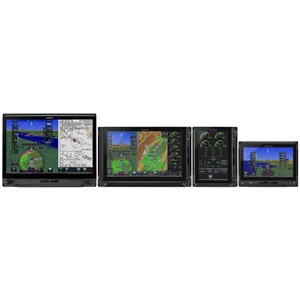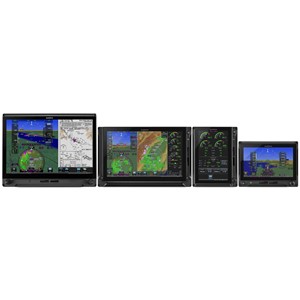Bring New Levels of Autopilot Capability and Reliability to Your Aircraft
- Cost-effective, superior in-flight characteristics, built-in self-monitoring capabilities and minimal maintenance needs when compared to older generation autopilot systems
- Designed for existing single- and twin-engine piston and turbine aircraft that have a wide range of aircraft speed and performance characteristics
- Standalone autopilot that boasts superior integration potential with G600/G500 and TXi series glass flight displays, Garmin navigators, as well as a variety of third-party equipment
- Robust feature set, including safety features such as underspeed and overspeed protection, a dedicated return-to-level (LVL) mode button, Garmin ESP™ (Electronic Stability and Protection), Flight Director (FD), coupled approaches and missed approaches when paired with a compatible navigator and much more
- Offers 2-axis (pitch and roll) capabilities as well as pitch trim (provides automatic trim and manual electric trim); addition of optional fourth servo adds yaw damp capability

Designed for aftermarket installation on high-performance single- and twin-engine piston aircraft as well as turboprops and jets, the GFC 600 flight control system offers an impressive array of top-level safety and performance features. Leveraging technologies developed for our popular GFC 700 autopilot that drives our most advanced glass flight deck systems, these sophisticated features include Garmin ESP, underspeed and overspeed protection, automatic LVL mode, airspeed climb and decent (IAS) mode, flight director (FD) command cues and more.
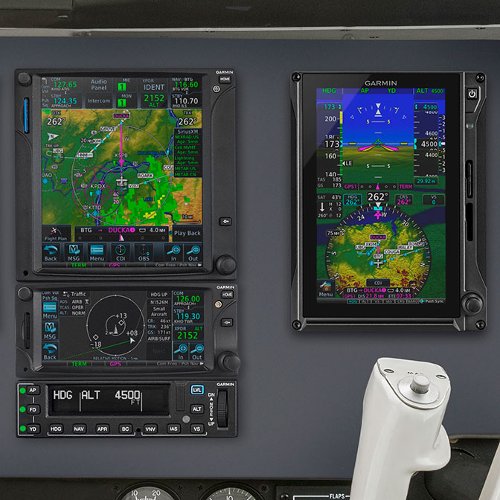 Maximize Performance
and Capability
Maximize Performance
and Capability
Drawing on Garmin's top-end GFC 700 flight control technology, GFC 600 provides crisp, precise response and optimum performance over the entire airspeed envelope of your aircraft. Rather than depending on failure-prone mechanical gyros, the GFC 600 system is digitally controlled, using solid-state attitude and air data sensor reference — giving you ultra-smooth roundouts, intercepts and more while also enhancing system reliability. Offering a flexible upgrade solution, GFC 600 can be interfaced with a variety of Garmin and third-party instrumentation and navigation sources. The design of the GFC 600 includes environmentally hardened servos, allowing for installation in a wide range of airframes, including harsh operating conditions. The robust hardware used in the GFC 600 autopilot’s scalable architecture lets you tailor your system’s configuration to support the level of capability you want. Every component has been engineered to work seamlessly together to ensure optimum smoothness and comfort in flight — while helping to reduce pilot workload in the cockpit.
Guidance from a compatible navigation source (such as GTN™ 750 or GTN 650) lets the GFC 600 system automatically fly a wide range of precision, nonprecision and GPS-guided approaches as well as holds, procedure turns, missed approaches and more. GFC 600 also includes built-in GPS roll steering capability, allowing smoother navigation tracking and eliminating the need for external roll steering converters. For installations including a compatible flight display (such as G600 or G500), flight director cues are displayed as command bars and are always in view when the autopilot is doing the flying — and may also be used for visual guidance when you’re hand-flying the aircraft. Better still, with support for a remotely installed Takeoff/Go-around (TOGA) button, the autopilot can be cued to automatically capture the correct pitch attitude required to fly a missed approach and then follow the missed approach procedure loaded in your compatible GPS navigator.
Control from Your Avionics Stack
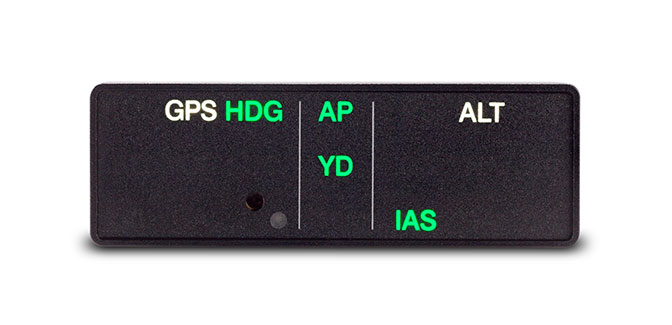 For
selection and control of GFC 600
modes and functions, a compact autopilot controller (GMC 605) comes standard with the system. Featuring backlit keys and a bright,
sunlight-readable
annunciator display, the mark-width controller mounts conveniently in your avionics stack. An intuitive up/down control wheel on the unit
allows for easy and precise adjustment of aircraft pitch, airspeed and vertical speed modes. And for installations where the autopilot
controller is out of the pilot’s primary field of view and a G600/G500 flight display is not installed for mode annunciation, a GI 285 standalone mode annunciator is available that retains an identical footprint of third-party
autopilot annunciators on the market. Support
for a remotely-installed control wheel steering (CWS) button allows you to temporarily disengage the servos to hand-fly the aircraft.
Then, to
further enhance safety in potentially disorienting situations, a dedicated LVL mode button on the autopilot controller lets you command
the autopilot to automatically return your aircraft to straight-and-level flight.
For
selection and control of GFC 600
modes and functions, a compact autopilot controller (GMC 605) comes standard with the system. Featuring backlit keys and a bright,
sunlight-readable
annunciator display, the mark-width controller mounts conveniently in your avionics stack. An intuitive up/down control wheel on the unit
allows for easy and precise adjustment of aircraft pitch, airspeed and vertical speed modes. And for installations where the autopilot
controller is out of the pilot’s primary field of view and a G600/G500 flight display is not installed for mode annunciation, a GI 285 standalone mode annunciator is available that retains an identical footprint of third-party
autopilot annunciators on the market. Support
for a remotely-installed control wheel steering (CWS) button allows you to temporarily disengage the servos to hand-fly the aircraft.
Then, to
further enhance safety in potentially disorienting situations, a dedicated LVL mode button on the autopilot controller lets you command
the autopilot to automatically return your aircraft to straight-and-level flight.
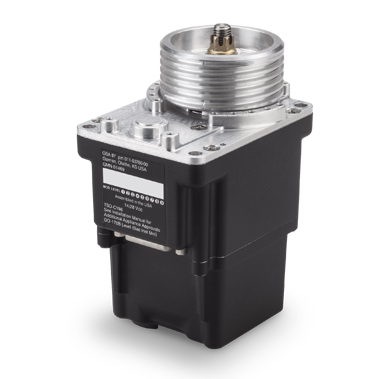 Modern Servos, Upgraded
Modern Servos, Upgraded
Utilized in many aircraft with the GFC 700 autopilot, the C90/E90 kits incorporate the higher-powered, more robust GSA 80 and 81 autopilot servos. These servos were designed to handle the increased torque and performance requirements vital for these larger, faster, and more powerful types of aircraft. The GSA 80/81 servos utilize similar technology to the GSA 87, and are hardened to operate in harsh high-altitude environments. All C90 and E90 installations include four servos, providing pitch, roll, yaw, and pitch-trim control.
Hand-fly with Stability Protection
As a standard feature, Garmin ESP works with GFC 600 to assist you in maintaining your aircraft in a safe, flight-stable condition when the aircraft is being hand-flown. This ESP feature functions independently of the autopilot — though it uses the same control servos — to gently nudge the controls toward stable flight whenever pitch or roll deviations exceed the recommended limits or underspeed/overspeed conditions occur. In the event of pilot incapacitation, after the system detects that it has been activated for a specified period of time, the autopilot will engage with the flight director in level mode, bringing the aircraft back to level flight and helping to avoid the onset of inadvertent stall/spins, steep spirals or other loss-of-control scenarios. Additionally, ESP can be manually disabled to allow for intentional flight maneuvers.
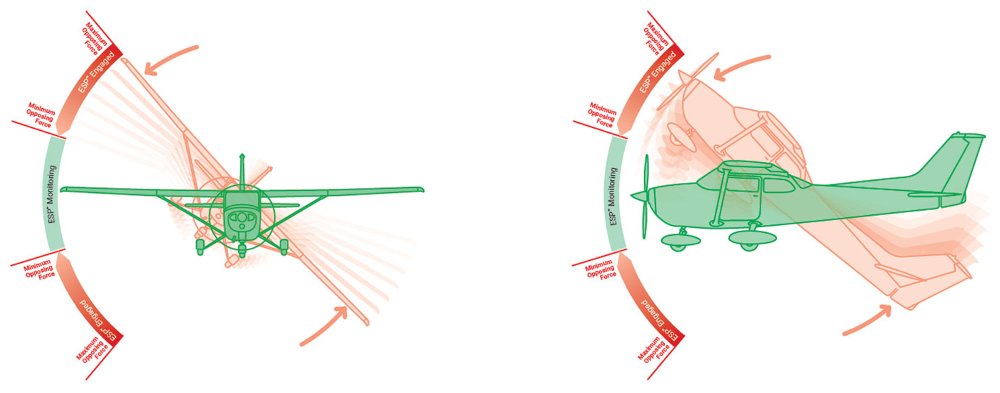
An Autopilot That Knows Its Limits
With the autopilot engaged, GFC 600 also provides overspeed and underspeed protection. In a high airspeed situation — for example, if you’re descending and your aircraft is approaching VNE or VMO — the system will increase the aircraft’s pitch attitude, preventing a further increase in airspeed and potential structural damage. Likewise, at the other end of the speed spectrum, GFC 600 provides underspeed (stall) protection. For example, in the event the pilot does not immediately advance the throttle to full power, with the autopilot engaged while flying a missed approach sequence, the autopilot will help prevent an aircraft stall by reducing pitch attitude and provide the pilot with an “airspeed, airspeed” audible alert.
It’s Confidence-inspiring Technology
With its extensive features and advanced technology, the GFC 600 system offers unprecedented value in a retrofittable autopilot solution. Backed by a comprehensive warranty and the industry’s No. 1-rated product support team, it’s truly a system you can own and fly with confidence. With supplemental type certification (STC) completed on select Beechcraft Bonanza and Baron model aircraft, with more to follow, it’s easy to select an approved installation that meets your mission requirements and budget. See your authorized Garmin installation center for more details on configuring a GFC 600 retrofit package for your aircraft.
In addition to traditional autopilot capabilities such as altitude hold, vertical speed and heading modes, the GFC 600 also includes the following:
- Built-in GPS roll steering capability which eliminates the need for external roll steering converters and allows for smoother navigation tracking when installed with a compatible navigator.
- Level Mode button which automatically engages the autopilot to restore the aircraft to straight and level flight.
- An intuitive built-in control wheel in the mode controller, which provides convenient adjustment of aircraft pitch, airspeed and vertical speed modes.
- Underspeed protection, which provides a low speed buffer to help prevent the pilot from stalling the aircraft.
- Overspeed protection, which helps prevent the pilot from exceeding aircraft maximum speed (VNE).
- Flight Director command bars that can be displayed on a variety of flight displays, such as the G600 TXi and select third-party flight displays.
- Pilots can fly coupled go-arounds during missed approach sequencing. A remotely-installed go-around button commands the Flight Director to display the appropriate pitch attitude required for the missed approach procedure and activates a loaded missed approach when paired with the GTN™ 750Xi/650Xi or GTN 750/650 navigators.
- Control wheel steering is available, which allows the pilot to adjust pitch, roll, altitude hold, vertical speed or airspeed references by using the control yoke while the autopilot is engaged.
- GMC 605 Autopilot Controller
- Servos (4): GSA 80, GSA 81, GSM 86, GSM 86 [Idler Pulley]
- GFC 600 STC Install Kits
- GMC 605 Product Info Kit
Options:
- If a G600/G500 flight display is not installed in the aircraft, an optional GI-285 autopilot annunciator panel can display the selected autopilot mode in the pilot’s primary field of view and retains an identical footprint of third-party autopilot annunciators on the market.
- In the absence of a compatible airspeed and pressure altitude source, an optional air data module attaches to the backplate of the GMC 605.


